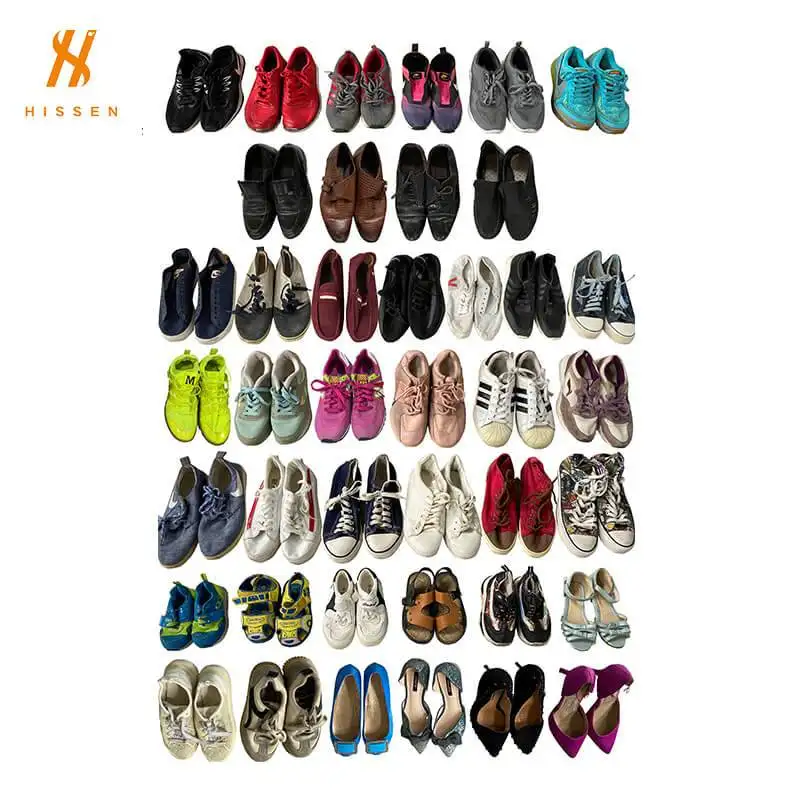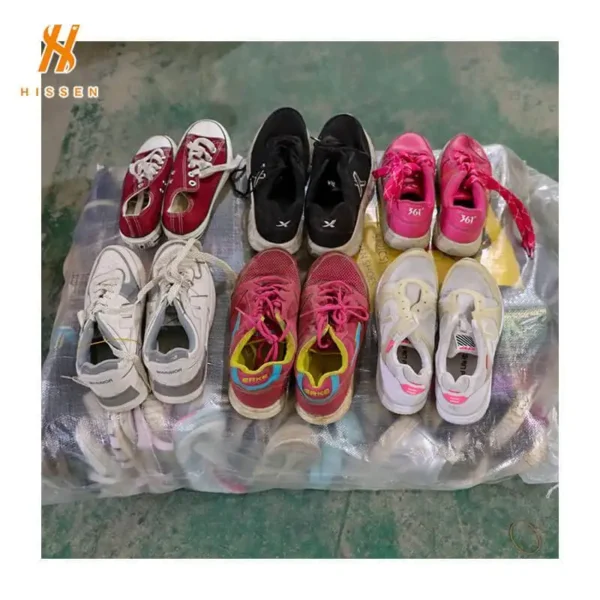I. Introduction: Navigating International Logistics in Wholesale Trade
The Second Hand Branded Shoes Wholesale industry continues to attract B2B buyers searching for cost-effective and high-value inventory. However, while sourcing pre-owned stock is often straightforward, the real complexity emerges when shipments cross borders. International logistics involves more than moving cartons from one country to another—it requires coordination between freight providers, compliance officers, and customs agents. For wholesalers, distributors, and importers, understanding these challenges is vital for maintaining smooth operations and safeguarding profit margins.
Whether sourcing from Asia, Europe, or North America, the flow of goods involves multiple checkpoints. Each step, from packing warehouses to port inspections, introduces variables that can delay shipments or add unexpected expenses. For businesses scaling bulk orders, ignoring these risks can mean missed deadlines, strained client relationships, or financial setbacks. To help new buyers understand these challenges, this guide will cover key points: A Beginner’s Guide to Second Hand Branded Shoes Wholesale.
II. Common Logistics Challenges in B2B Footwear Wholesale
Rising Transportation Costs
One of the most pressing challenges in the Second Hand Branded Shoes Wholesale is transportation expense. Freight rates fluctuate with global demand, fuel prices, and carrier availability. For B2B buyers dealing in bulk shipments, these changes significantly influence overall purchasing budgets. While cost-sensitive sourcing remains a priority, focusing solely on low freight charges often backfires if reliability and transit times suffer.
Delays and Time Sensitivity
B2B supply chains rely on predictable schedules. Any delay—be it from port congestion, weather disruptions, or insufficient container space—can derail delivery commitments. For second hand branded shoes wholesalers who promise fast restocking cycles to retailers, late arrivals may result in lost sales opportunities. Effective planning, buffer timelines, and selecting experienced freight forwarders help mitigate this risk.
Risk of Damage and Loss
Shipping pre-owned or surplus goods comes with exposure to physical damage. Improper packaging, stacking in transit, or rough handling at depots can compromise product quality. Since B2B buyers often purchase in bulk, even a small percentage of damaged items translates to substantial financial loss. Securing shipments with adequate protective materials and working with reliable logistics partners reduces this exposure.
III. Customs Clearance Difficulties

Understanding Duties and Tariffs
For Second Hand Branded Shoes Wholesale, customs clearance is often more complex than first-time retail goods. Countries apply varying tariff structures depending on classification, condition, and declared value. Importers must ensure accurate product categorization to avoid fines or shipment seizures. Mislabeling or under-declaring goods may appear to cut costs in the short term but leads to long-term risks. For example, shipments involving second hand designer shoes often face additional scrutiny due to classification complexities.
Import Restrictions and Regional Rules
Certain markets apply strict rules to pre-owned footwear due to health, safety, or local industry protections. For example, restrictions may involve sanitization requirements, specific certifications, or outright bans on particular product categories. For B2B businesses, ignoring these regulations can cause entire shipments to be returned or destroyed, creating irreversible losses.
Documentation and Compliance
Smooth customs clearance requires precise paperwork. Commercial invoices, packing lists, certificates of origin, and health declarations must be accurately completed and submitted in line with local regulations. Missing or incomplete documents are a leading cause of clearance delays. For wholesalers, this means dedicating resources to compliance checks or partnering with agents specialized in second hand goods.
IV. Strategies to Reduce Risks and Costs
Prioritizing Compliance
The foundation of efficient international trade lies in compliance. B2B buyers dealing in bulk pre owned designer shoes or other wholesale goods must familiarize themselves with destination market rules. Investing in legal consultation or compliance audits helps minimize mistakes. Clear internal processes for documentation also reduce errors during customs checks.
Leveraging Insurance Options
Insurance may appear to be an added cost, but it is a safeguard against cargo loss, damage, or theft. For Second Hand Branded Shoes Wholesale importers, insuring bulk shipments ensures financial stability even if unforeseen events occur during transit. Different policies cover varied risks, so businesses should choose plans aligned with their shipping routes and risk exposure.
Supply Chain Optimization
Wholesalers can cut costs and improve reliability by optimizing their supply chains. This includes consolidating shipments to reduce per-unit freight charges, selecting regional hubs for distribution efficiency, and forming long-term partnerships with trusted logistics providers. For B2B operations, supply chain optimization not only reduces financial outlay but also strengthens service reliability for downstream clients.

V. Conclusion
The Second Hand Branded Shoes Wholesale trade offers strong opportunities for B2B buyers worldwide. Yet success depends not only on sourcing attractive stock but also on managing logistics and customs with precision. Challenges such as fluctuating freight costs, shipment delays, import restrictions, and documentation hurdles can strain operations. However, with proactive planning, strict compliance, insurance coverage, and supply chain optimization, businesses can navigate these issues confidently.
By mastering logistics and customs procedures, wholesalers position themselves as reliable partners for retailers and distributors. In an increasingly competitive market, those who manage international operations effectively will maintain smoother supply chains, lower costs, and stronger client trust—ensuring sustainable growth in the global second hand footwear industry.



